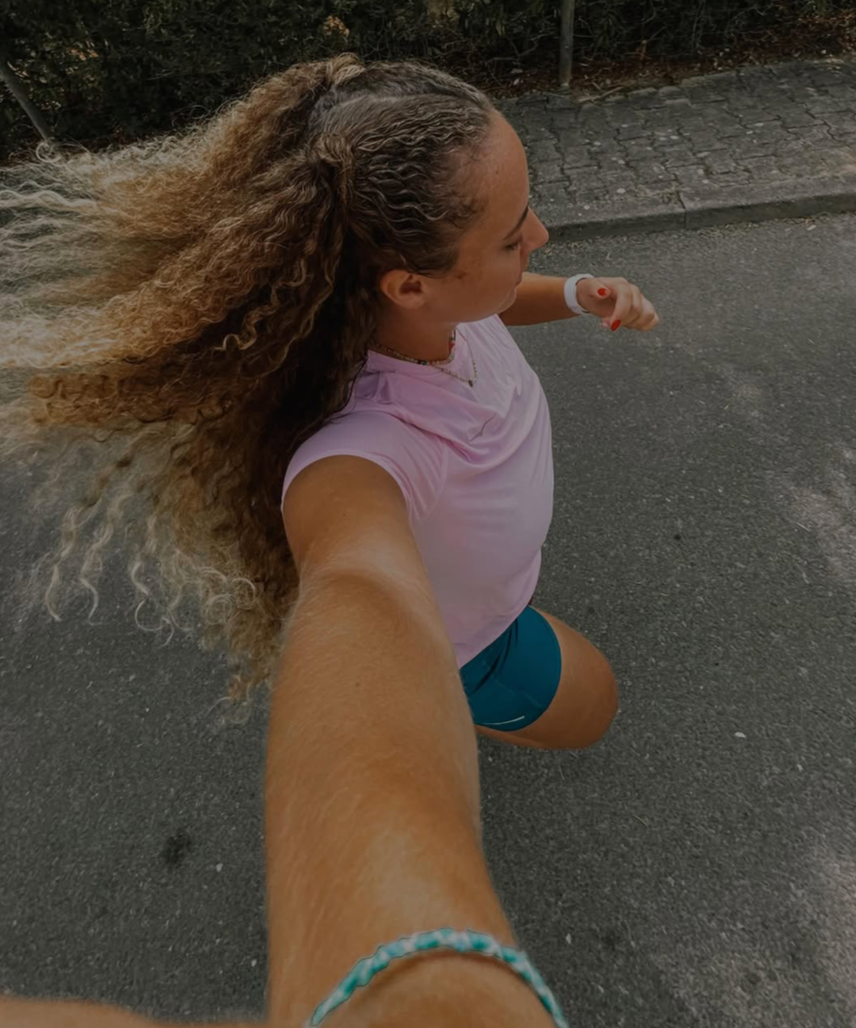Let's begin by recognizing the positive impact that social media has, such as the possibility of staying in touch with family and friends; the possibility of self-expression; the reduction of feelings of isolation; a means of support for adolescents who find a space to talk about mental health issues; and it is also described as a facilitator of connection between people facing mental health challenges.
Among the main negative effects we find an increase in depression and anxiety disorders; sleep disorders; a decrease in the feeling of general well-being; FOMO (fear of missing out); cyberbullying; perception of body image and self-esteem; pressure for constant productivity.
Depression and Anxiety.
Several studies conducted with adolescents and young adults have shown that heavy social media use leads to concerns about a number of issues, including social comparison, fear of missing out on relevant information, and excessive exposure to news and fake news, which leads to feelings of stress. It has also been observed that adolescents who spend more time on social media and interacting with electronic devices are more likely to develop mental health issues than those who spend more time on activities away from screens.
The tendency to devalue real relationships has created a distance between people, and knowing that the need for connection and belonging are human needs, this disconnection can lead to feelings of loneliness, depression, anxiety, and stress.
While it's true that social media allows us to connect with people, it's also true that virtual connections are no substitute for meaningful social interactions and can lead to a feeling of isolation and the resulting endless cycle of updates and notifications, to the detriment of other important aspects of one's life.
We also emphasize that these virtual connections often involve confrontation with what the other is doing, or what the other has, activating the feeling of "comparing and despairing," feelings of inadequacy, and contributing to symptoms of anxiety.
FOMO
FOMO is an acronym that stands for Fear of Missing Out, that is, the fear of not being present at an event or interesting activity and therefore being constantly connected to what others are doing, so as not to miss out.
Cyberbullying
Cyberbullying can manifest itself in the form of negative comments, either publicly or privately. The feeling of impunity and the ability to do so anonymously contribute to this type of bullying, which leaves its mark on those who receive it.
Self-esteem
The dynamics of social media often lead to comparisons between users' lives, including material possessions, lifestyles, and aesthetics, even though this appearance is often edited to make it look better. This can result in feelings of inferiority and insecurity, especially when the number of likes and interactions on posts does not meet expectations.
The way social media is organized tends to emphasize the importance of possessing material goods and certain lifestyles, thus fostering exhibitionist behaviors in which individuals relentlessly seek to display their achievements as trophies, in a continuous cycle of competition to establish who has the most. This creates a dynamic in which the focus is on materialism and the pursuit of validation through ostentation.
Body perception
Exposure to social media is associated with women's feelings of dissatisfaction with their own bodies, increased concerns about appearance, and a higher incidence of eating disorders. It has been observed that young adult women who took a break from social media for about a week experienced a significant increase in their self-esteem and body image.
Sleep disturbance
Several studies indicate that increased exposure to social media negatively affects sleep quality, especially when exposure to smartphones, laptops, and tablets occurs at night. Another interesting finding shows that 1 in 5 teenagers wakes up during the night to check for messages or notifications, leading to greater feelings of drowsiness and fatigue compared to teenagers who don't.
Another issue that arises regarding the negative impact on social media is the demand for availability and management that they impose, leading to an excessive amount of weekly hours dedicated to updating social media, observing the lives of ex-partners, and fueling virtual conflicts.
The negative impact of social media on mental health appears to be exacerbated by a lack of digital literacy and social pressure to maintain an active social media presence. A study of university students suggests that the negative effects are more pronounced in young people who isolate themselves socially.
Therefore, it's important to use social media in an informed manner, integrating both its positive and negative aspects. Here are some strategies that we believe are relevant.
Reflect
- How does social media impact your mental health?
- How do you feel when you don't have access to social media for a while?
- Is your digital identity similar to your real identity?
Keep in mind
- Each person has their own path and rhythm;
- What is visible in the digital world is only a fraction of reality;
- Filter content, separate content that adds value from content that harms;
- Most of the information is generalist, that is, it does not take into account individual characteristics, life history, etc.;
- Confirm sources of information.
Reduce
- Reduce excess stimuli;
- Turn off notifications;
- Limit the time you use apps;
- Limit the number of social networks you are present on.
Conscience
- Use social media consciously, trying to be involved in the content instead of endlessly scrolling;
- Take a moment to be on social media, instead of using social media all the time;
- Avoid being on social media when eating, socializing, or exercising;
- Be present in the moment.
Involvement
- Invest in quality time with family and friends;
- Participate in cultural activities;
- Learn something new (in a self-taught or structured way);
- Do physical exercises;
- Being in contact with nature;
- Engage in creative activities.
Sleep quality
- Disconnect from social media about 40 minutes before bed;
- Have a good sleep routine.
Psychotherapy
- If you feel that social media is having a negative impact on your mental health, seek the advice of a mental health professional.
Raquel Ferreira Santos, Clinical Psychologist at RUMO .
Works in the areas of emotional regulation, mood disorders, and psychological violence, with both young people and adults. Professional license number 15087.
Sources:
Costa, LG & Petrich, LR (2023). Impact of excessive use of virtual social media on mental health. Health Sciences, Psychology, Volume 27 - Issue 128/NOV/2023.
Fruehwirth, JC, Weng AX, Perreira KM(2024) The effect of social media use on the mental health of college students during the pandemic. Health Econ. 2024 Oct;33(10):2229-2252. doi: 10.1002/hec.4871. Epub 2024 Jun 14. PMID: 38873817.
Hamm MP, Newton AS, Chisholm A, Shulhan J, Milne A, Sundar P, Ennis H, Scott SD, Hartling L. Prevalence and Effect of Cyberbullying in Children and Youth: A Scoping Review of Social Media Studies. JAMA Pediatr. 2015 Aug;169(8):770-7. doi: 10.1001/jamapediatrics.2015.0944. PMID: 26098362.
Lopes LS, Valentini JP, Monteiro TH, Costacurta MCF, Soares LON, Telfar-Barnard L, Nunes PV. (2022)Problematic Social Media Use and Its Relationship with Depression or Anxiety: A Systematic Review. Cyberpsychol Behav Soc Netw. 2022 Nov;25(11):691-702. doi: 10.1089/cyber.2021.0300. Epub October 10, 2022. PMID: 36219756.
Twenge, JM, Joiner, TE, Rogers, ML, and Martin, GN (2018). Increases in Depressive Symptoms, Suicide-Related Outcomes, and Suicide Rates Among US Adolescents After 2010 and Links to Increased New Media Screen Time. Clinical Psychological Science , 6 (1), 3-17. https://doi.org/10.1177/2167702617723376
Young Health Movement (2017). Status of Mind: social media and young people's mental health. Royal Society for Public Health via https://www.rsph.org.uk/our-work/campaigns/status-of-mind.html


































